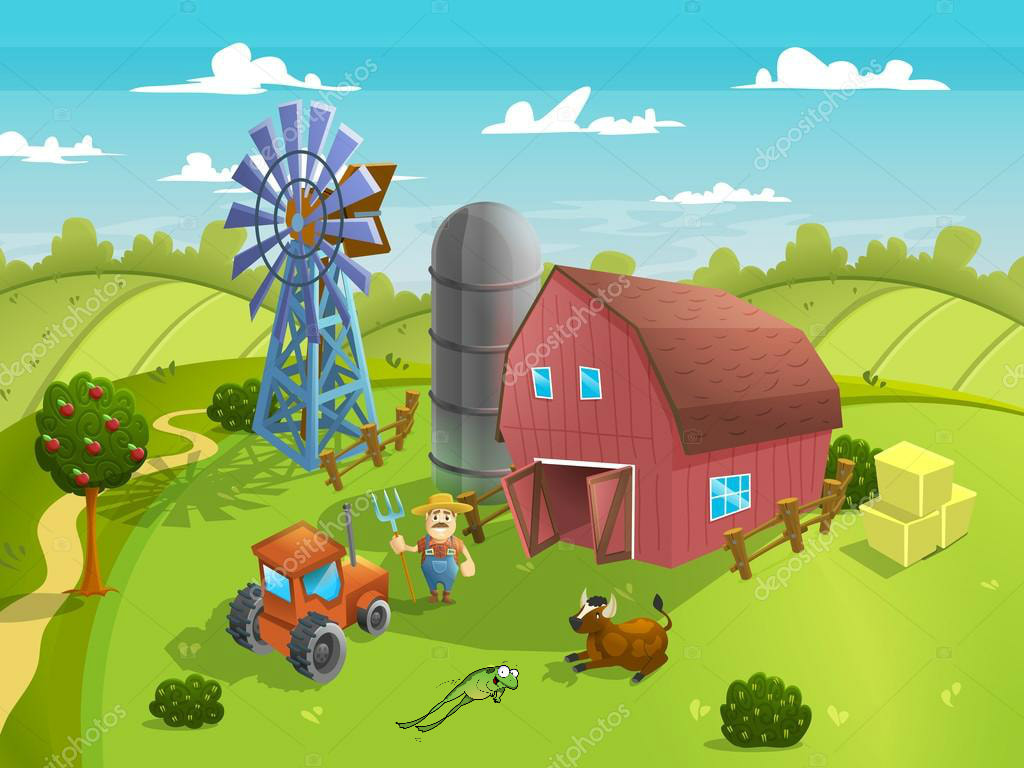For today's blog, I have gathered together a bunch of fun farming facts which, I hope, will honor all the incredible farmers the world over.
Farm Facts to Cultivate Your Mind
1. Farming began around 10,000 B.C. during the First Agricultural Revolution, when nomadic tribes began to farm. Additionally, this is when the eight so-called “founder crops” of agriculture appeared: 1) emmer wheat, 2) einkorn wheat, 3) hulled barley, 4) peas, 5) lentils, 6) bitter vetch, 7) chickpeas, and 8) flax.
2. The Industrial Revolution led to faster and more efficient farming technology, which helped usher in the Second Agricultural Revolution from 1700 to 1900 in developed countries. Many less developed countries are still experiencing the Second Agricultural Revolution. The Third Agricultural Revolution, or the Green Revolution, corresponds in the late 20th century with the exponential population growth occurring around the world. It includes biotechnology, genetic engineering, chemical fertilizers, and mass production of agricultural goods.
3. Fruit farming began sometime between 6000 and 3000 B.C. Figs were one of the first cultivated fruit crops.
4. Americans spend 10% of their income on food, which is the lowest of any country.
5. Plows were invented in the Middle East soon after agriculture began. The earliest plow, called an ard, was probably made from sharpened tree branches. The plow has been cited as one of the most important inventions in the advancement of society.
6. In the early 1900s, Mary Isabel Fraser visited China and brought back seeds to New Zealand. She grew the first crop of kiwi in 1910. Today, New Zealand produces 1/3 of the world’s supply of kiwi.
7. More than 6,000 different kinds of apples are grown around the world. The biggest producer is China, followed by the United States, Iran, Turkey, Russia, Italy, and India.
8. The tallest, biggest trees or bushes do not always yield the most fruit. Controlling the height of plants helps produce more fruit in less space. Farmers may also change a tree’s shape by cutting branches or forcing branches to grow in a certain direction. The shape of the tree affects its lifespan and the size of its fruit.
9. There are around 2.2 million farms in the United States.
10. Bananas are the number one fruit crop in the world. They are the 4th largest overall crop, after wheat, rice, and corn. India grows more bananas than any other country. The Philippines, China, and Ecuador are the next three top producers of bananas.
11. Farmers today produce 262% more food with 2% fewer inputs (such as seeds, labor, fertilizers) than they did in 1950.
12. One in three farm acres is planted for export.
13. More than 100 agricultural crops in the U.S. are pollinated by bees. In fact, one out of three bites of food people eat is thanks to honey bees. Bees contribute to more than $15 billion worth of crops every year through pollination.
14. According to the UN, an exploding world population, intensive farming practices, and changes in climate have provided a breeding ground for an unprecedented number of emerging diseases. Poultry farming, for example, may account for the global spread of bird flu. In fact, the majority of the 39 new diseases that have emerged in just one generation have come from animals, including Ebola, SARS, and the bird flu.
15. Today’s farmers grow more than “food, feed, and fiber”—they also grow crops that are processed into fuel. For example, corn can be made into ethanol and soybean oil can be made into diesel fuel.
I hope these facts helped enlighten your mind about farmers and farming. I know I learned a lot in doing the research, like who knew that India grew a bunch of apples? Or that bananas are the world's number one fruit crop. If you can, thank a farmer this weekend. If you don't live out in the country, you might include a stop at a farmers market this weekend. Not only can you personally thank a farmer for helping to feed you and your family, but you can also pick up fresh fruits and vegetable for dinner. I'd call that a win-win for sure. And it's a great way to spend quality time this weekend with your kids or grandkids.
Whatever your plans are this weekend, try to get outside and enjoy the autumnal beauty. It doesn't last long. Have a great weekend and please stay safe.
I'll be back here again on Monday with another week of blogs. Until then, I wish you all
PEACE.

 RSS Feed
RSS Feed